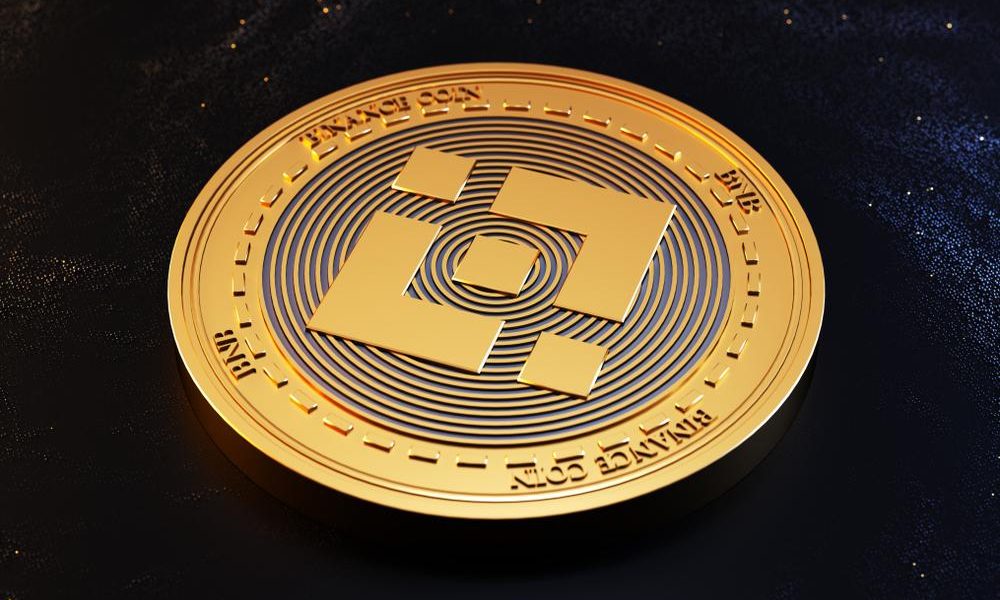BNB Foundation Removes Nearly $1 Billion in Tokens from Circulation
22.07.2024 21:00 1 min. read Alexander Stefanov
The BNB Foundation has revamped its approach to reducing the supply of BNB tokens by introducing a real-time burning mechanism linked to gas fees. This change complements their previous burn strategies.
On Monday, the foundation completed its latest quarterly burn, removing over 1.6 million BNB tokens, valued at around $971 million, from circulation. This action is part of a strategic effort to decrease the overall supply of BNB across various platforms including the Binance Smart Chain (BSC) and its associated networks.
This burn is the 28th in a series of quarterly reductions since the foundation’s burn program started in 2017. The initial goal was to cut the BNB supply from over 145 million to 100 million. The most recent burn in April saw nearly 2 million BNB destroyed, valued at about $1.17 billion.
The BNB Foundation has transitioned to a decentralized Auto-Burn system, which allows token burns to be executed directly on the BSC network, removing the need for Binance’s involvement. This new method sends all burned tokens to a “blackhole” address, ensuring transparency.
Additionally, the foundation has launched a real-time burning system that periodically destroys a portion of transaction fees collected by validators. They also introduced the BNB Pioneer Burn Program, which allows users to recover lost BNB and pegged tokens, aligning with their goal of maintaining a 100 million BNB supply.
-
1
Will Ethereum and Solana Benefit from Wall Street’s Shift?
09.07.2025 19:00 2 min. read -
2
BNB Chain Upgrades and Token Delistings Reshape Binance Ecosystem
16.07.2025 22:00 2 min. read -
3
Solana Price Prediction: SOL Could be Ready to Move to $225 After Breakout
21.07.2025 17:14 3 min. read -
4
Altcoin Supercycle? Analysts Signal ‘Banana Zone 2.0’ as Market Erupts
13.07.2025 19:00 2 min. read -
5
Most Trending Cryptocurrencies on CoinGecko After Bitcoin’s New ATH
11.07.2025 19:00 2 min. read
Interactive Brokers Weighs Stablecoin Launch
Interactive Brokers, one of the world’s largest online brokerage platforms, is exploring the possibility of issuing its own stablecoin, signaling a potential expansion into blockchain-driven financial infrastructure as U.S. crypto regulation begins to ease.
BNB Coin Price Prediction: As BNB Chain Daily Transaction Volumes Explode Can It Hit $900?
Trading volumes for BNB Coin (BNB) have doubled in the past 24 hours to $3.8 billion as the price rises by 7%. This favors a bullish BNB Coin price prediction at a point when the token just made a new all-time high. BNB is the second crypto in the top 5 to make a new […]
PENGU Price Soars While Whale Transfers Raise Alarms
The Pudgy Penguins’ PENGU token is under intense scrutiny after large transfers from its team wallet raised potential red flags.
BNB Hits New All-Time High Amid Token Launch Frenzy
BNB surged to a new all-time high on July 28 around $860, breaking above the critical $846 level following a sharp 7% intraday move.
-
1
Will Ethereum and Solana Benefit from Wall Street’s Shift?
09.07.2025 19:00 2 min. read -
2
BNB Chain Upgrades and Token Delistings Reshape Binance Ecosystem
16.07.2025 22:00 2 min. read -
3
Solana Price Prediction: SOL Could be Ready to Move to $225 After Breakout
21.07.2025 17:14 3 min. read -
4
Altcoin Supercycle? Analysts Signal ‘Banana Zone 2.0’ as Market Erupts
13.07.2025 19:00 2 min. read -
5
Most Trending Cryptocurrencies on CoinGecko After Bitcoin’s New ATH
11.07.2025 19:00 2 min. read


